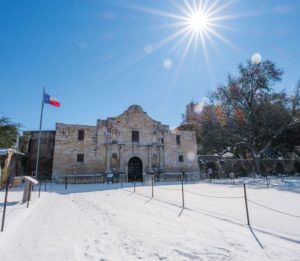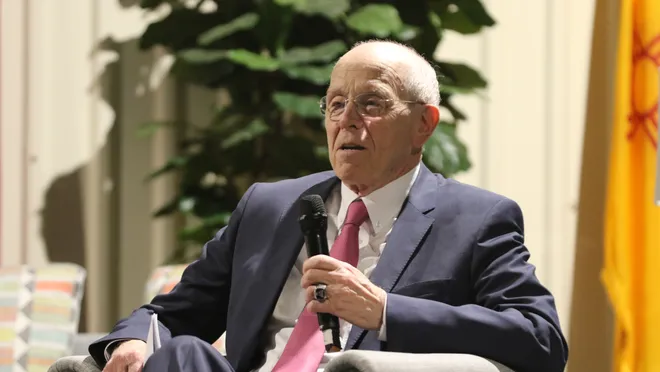 The chemical industry has been slow to recover from the February cold snap in the state
The chemical industry has been slow to recover from the February cold snap in the state
Cold weather in Texas took out much of the state’s power, hydrocarbon, and chemical production.
The mid-February freeze in Texas still has chemical production snarled more than a month later, leading to persistent shortages of polymers and slowing downstream industries such as auto production. Chemical executives say the industry might not return to normal for another 6 months.
A freak cold snap ushered in by winter storm Uri hit Texas and exploited the vulnerabilities of the state’s electrical grid, which relies heavily on locally produced natural gas and is relatively isolated from the rest of the country. The freezing temperatures shut down natural gas wells. Pipeline compressors lost power.
With natural gas production sapped, electricity generators took their power plants off line. Seeing nearly half of electricity production disappear, the Electricity Reliability Council of Texas, which manages the Texas grid, instituted rolling outages just when Texans, who rely heavily on electric heat, needed the power the most.
According to the US Energy Information Administration, the weather event took out 28% of Gulf Coast refining output, and much of it has been slow to come back on line because of damage.
The impact on chemical production has been worse, according to the consulting firm Wood Mackenzie. The weather knocked out 80% of US olefins and polyolefins capacity, the firm says, and as of March 19 only 60% of the olefins output was back in operation. Significant polyolefins capacity is still off-line as well. “This is partly due to the limited feedstock availability for olefins monomer, comonomer, and additives in the region,” the consulting firm says in an analysis.
Dow’s president and chief financial officer, Howard Ungerleider, elaborated on the difficulties at the JP Morgan 2021 Industrials Conference on March 16. He said it normally takes the industry 3 months to recover from a hurricane. Uri, he said, is “a 6-plus-month event before we start to see things calibrate back to just fundamental underlying demand.”
All of Dow’s ethylene crackers, except for one, its Sabine River plant in Orange, Texas, are back up and running, Ungerleider said. He expects Dow’s assets to be at 80% of capacity by the end of March and operating fully by the end of April. “We still are dealing, like many others are, with a few raw material constraints, and we are continuing to do some freeze damage repairs,” he said.
At the same conference, LyondellBasell Industries CEO Bob Patel said the Texas freeze will end up taking out 10–14% of overall US polyethylene production this year. “I think we’ll be well into the fourth quarter before we see conditions back to normal in terms of adequate inventory levels across the value chain and assets running,” he said.
Patel estimated that the cold snap will reduce his company’s profits by up to $450 million in the first quarter. Of that, 15% is additional maintenance costs; the balance is lost sales.
W. R. Grace, which supplies catalysts to refiners and polyolefin makers, reduced its own earnings guidance for the quarter. Customers experienced outages of 8–24 days, Grace says, and many of those that are up and running are doing so at reduced rates.
The weather-related disruptions rippled beyond olefins and polyolefins to affect much of the US chemical industry. Celanese, for example, declared force majeure—meaning it might not be able to fulfill its contracts—for a host of products, including acetic acid, vinyl acetate, and vinyl and acrylic emulsions.
OQ Chemicals shut down its Bay City, Texas, site and declared force majeure for oxo alcohols, aldehydes, acids, and esters. Nitrogen fertilizer maker LSB Industries suffered an outage at its facility in Pryor, Oklahoma, due in part to an interruption in its natural gas supply.
Specialty materials and engineering polymer companies also experienced outages. Covestro declared force majeure for polyurethane raw materials such as isocyanates and polyols, as well as polycarbonate resin. The company is restarting its assets. “We are now facing challenges in securing key raw materials that are hampering our ability to produce product,” Covestro tells C&EN in an email.
BASF declared force majeure on nylon 6 and 6,6. The company says, for example, that it depends on other resin producers for its nylon 6,6 compounds, and they have not been supplying BASF. According to a bulletin from the investment firm Jefferies, Toray Industries may not be able to meet customer commitments for airbag cloth, which is made from nylon 6,6.
Such problems are extending all the way to customers in the auto industry. Blaming a “supply shortage” because of COVID-19 and the cold snap, Toyota says production is being affected at plants in Kentucky, West Virginia, Mississippi, Texas, and Mexico.
Honda says it is dealing with a “number of supply-chain issues,” including the severe winter weather, port congestion, and an ongoing shortage of microchips.
Source: https://cen.acs.org/business/petrochemicals/Texas-petrochemical-production-still-thawing/99/i11




0 Comments